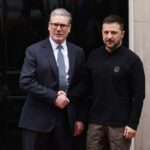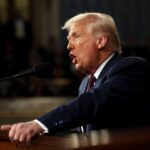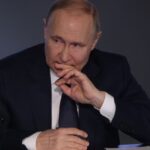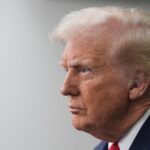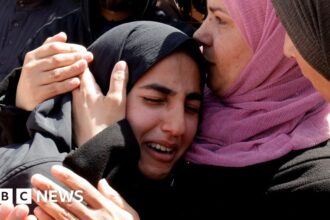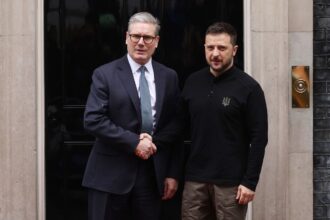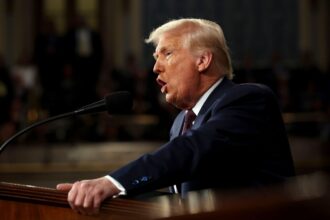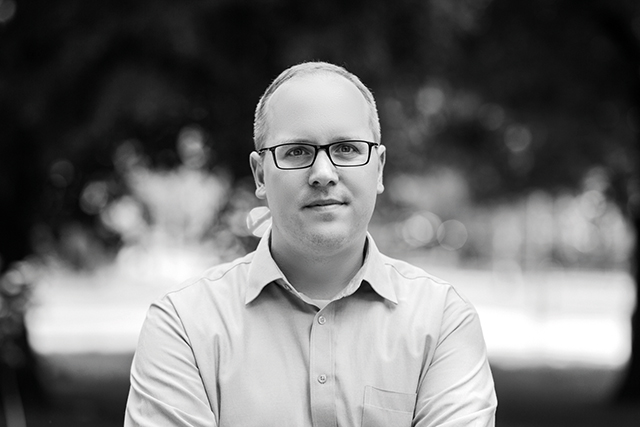It’s time to look at what the Associated Trio of Georgia Moldova and Ukraine will get from Brussels in return for their combined efforts and how the EU intends to deal with the ever-increasing challenges in the EaP Region. GISP spoke with Adam Reichardt to assess the future prospects of Eastern Partnership.
What can the Associated Trio of Georgia Ukraine and Moldova show for its efforts? What did they bring back?
I guess the real issue is what they were supposed to bring back in the first instance. The ultimate goal of the Associated Trio, or membership perspective, is still a long way off. I do, however, think that the Trio is a positive development. The fact that Ukraine has decided to pursue its integration with Georgia and Moldova is a very positive sign. This reminds me how the Visegrad nations organized themselves to gain NATO and EU membership in the 1990s. The emergence of Associated Trio, as a group or bloc, is a significant development in the Eastern Partnership. The Associated Trio is a group of three countries with different agendas, and different stages of integration and development. But I think that it was important for them to show at the summit they were united in their effort to achieve deeper integration and ultimately the European perspective.
“Russia’s invisible veto” is a term that is increasingly used when discussing the NATO membership prospects of Georgia and Ukraine. Should we also talk about unseen Russian votes when it comes to the EU Membership perspectives of the Trio, or should we use the same term?
Some EU countries are more sensitive to Russian concerns than others. This is one of the reasons why declarations are often watered-down, in the sense that they are not as decisive or do not promise anything like a membership prospective for Eastern Partnership countries. I don’t believe the Kremlin is serious about the EU, as a geopolitical force. I think that the Kremlin has a greater interest in NATO as it is a security alliance led by the United States. If we were in a better situation, with no tensions in the region and no possibility of an escalation, there might be more room for maneuvering in the EU. There is very little room left as things stand. Comparing NATO and EU memberships, the “invisible veto”, or Russian “invisible veto”, is much more prevalent on the NATO side.
Charles Michel said he would “take a strong reaction and pay a heavy price if there was NEW direct military aggression against Ukraine”. The word “new”, caught my eye. Does it mean that the current military aggression against Ukraine does not warrant any increased attention from the EU. Do Brussels think they’ve done enough to stop the violence in Ukraine?
I wouldn’t take it that far. The Kremlin has a knack for creating mass paranoia, and everyone is slowly adapting to it. If there is a renewed escalation of tension, I don’t believe that any new measures aimed at Russia would be very effective as Russia has already adapted. If the EU does not go all-in and investigate the off-shore investments schemes that are taking place in certain EU countries like Cyprus, it will be difficult to make a difference. Excluding Russia from SWIFT would also be a serious blow, but I’m sure that Russia has calculated the risks and opportunities much better than the bureaucrats of Brussels.
Unfortunately, the EU has very little leverage unless it is willing to provide military support. I’m not referring to troops on the ground but rather equipment and support in terms increasing defensive weapons. But the EU does not work this way. The EU as a whole does not operate this way. Some EU countries do. The Zelensky government, the Ukrainian government, has gone above and beyond in order to keep this issue on the Western agenda. The Crimea Platform, for example was a good initiative and an opportunity for Western nations to reaffirm that they do not recognise the annexation and support Ukraine’s endeavors. But the question remains, how far will they go to support Ukraine. Unfortunately, I do not think there is much room for them to go beyond the steps they are unwilling to take.
Belarus was also discussed extensively at the Summit. The EU’s response to Lukashenko playing the migrant cards: new sanctions against 17 individuals and eleven entities. Is this sufficient?
It’s more of a symbolic gesture than anything else. Sanctions are important but they could have a greater impact if certain loopholes were closed, such as a non-recognition by all member states of Lukashenko’s presidency. I believe there are still levers that the EU can use to really turn the screws on Lukashenko’s regime. The EU must do more to support Belarus’ civil society and make it easier for Belarusians, who are fleeing in large numbers, to obtain asylum and continue their lives outside of Belarus. Poland has done a great deal in this area, and other countries should follow suit.
What was promised to the EaP countries? It was emphasized that the willingness of these countries to reform will be a determining factor in their ability to deepen cooperation. Is this a placeholder for a European perspective that wasn’t mentioned at this summit
It’s up to you whether this is a placeholder, or an excuse for not giving your gift. It’s easy for us to say that the reform process has been too slow, or that there’s been some backsliding by some countries. This is why we haven’t yet given the perspective on membership. But this is only an excuse. If you look at the Balkans, who have ended up in the limbo of the accession negotiations process, it is clear that internal problems in the EU are the cause. There’s a lot skepticism about the enlargement of the European Union at the moment. If Georgia, Ukraine or Moldova are given a European perspective, there will be a lot more outrage in some capitals.
This is a fact we must acknowledge and consider. But I also think that the EU could and should be more direct and say, “Here are the steps we need to take to reach the membership perspective, and some might not even depend upon what you do. Once that membership prospective has been achieved, here is how we get there.” Unfortunately, we still wait for this to happen. If reforms are so important, make sure that the conditions are based on them. That way, if some countries do not meet the conditions, we will know who is to blame. I think that the Associated Trio must push for this; they should do the reforms, and then say “we have achieved that and that here, and we now expect the European perspective,” at least on paper.
Positively, the Commission President Von Der Leyen mentioned an economic investment plan with an estimated investment amounting to 37 billion Euros. How can we measure its impact?
This is a good reason to be optimistic. I’m always hopeful that things will eventually go in the right direction. It’s a long, perhaps longer than we expect, process. We expect immediate satisfaction, actions and results. The investment in the area is quite large. Each country has the opportunity to define its own priorities and can work with the EU about where these investments should go. We are looking at infrastructure, connectivity and digital transition as well as climate change, green resilience. All of this helps with physical integration with the European Union. These are important developments, but the results will be seen in the long term. Accountability is another big challenge, ensuring that the money doesn’t just disappear and end up in the pockets oligarchs of the region. It is a huge challenge for the EU not to let this happen.
The EU is also facing a big PR and communication challenge. It has been a problem for many years. A lot of money has already been invested in these countries, and the EU is providing a lot support to the civil society, different sectors and economic sectors. It must communicate this to these societies and tell them, “look, you get all of this from the EU, it’s part of the Eastern Partnership.” The EU has a very poor PR communication. It is important to take a strategic approach when demonstrating the amount of investment already made. This is the key challenge. Actions speak louder than mere words, but they are still necessary.
Interview by Vazha Tavberidze
Read More @ georgiatoday.ge

